Japan's leaders continue push to restart nuclear reactors
Updated: 2013-07-11 08:09
By Cai hong (China Daily)
|
||||||||
Masao Yoshida, former chief of Japan's crippled Tokyo Electric Power Co's nuclear power plant in Fukushima, died of esophageal cancer in Tokyo on Tuesday.
TEPCO announced that Yoshida's death was not due to radioactive exposure.
Yoshida had commended his brave colleagues who worked as the last line of defense at the Fukushima nuclear plant after it was hit by the March 11, 2011, earthquake and tsunami.
TEPCO also reported on Tuesday that the density of radioactive cesium in groundwater by the sea at TEPCO's Fukushima No 1 nuclear power plant soared to about 90 times higher than the levels found on Friday. The reason for the sudden rise in toxicity is unknown.
The countless problems with the cleanup of the Fukushima No 1 nuclear power plant, whose meltdown is Japan's worse nuclear disaster, isn't slowing the Abe administration's push for restarting the nuclear reactors.
On Monday, when Japan's new safety regulations on nuclear reactors went into effect, four power companies applied to the Nuclear Regulation Authority for the safety evaluations necessary to restart 10 of their nuclear reactors.
The NRA, a fledgling agency launched in September, is considering the 10 reactors as the "first group". A deadline for submissions for this group has not been decided yet, but any reactors that are put into the "second group" will face more delays before they can potentially be restarted. To avoid such a delay, TEPCO is rushing to apply for the No 6 and No 7 reactors of its Kashiwazaki-Kariwa Nuclear Power Plant in Niigata prefecture.
Last week, the NRA allowed the only two reactors currently working in the country to stay online for now even though they failed to meet strict new safety standards.
"The government's safety regulations are just the minimum standards," the Japanese newspaper Mainichi Shimbun said, asking power suppliers to enforce stricter standards to enhance safety of their nuclear plants.
Japanese geologists and specialists outside the nuclear power industry clearly point out the dangers of operating nuclear power plants in earthquake-prone regions, which pretty much make up all of Japan.
With the exception of the Ikata Nuclear Power Plant in Ehime prefecture, none of the nuclear power plants that have submitted their applications has quake-proof emergency facilities.
The ruling Liberal Democratic Party is traditionally a pro-nuclear group that largely engineered the nation's reliance on atomic energy. Its upper house election pledge has a goal of "acquiring approximately 26 trillion yen ($25.94 billion) of related markets by the year 2020".
Restarting nuclear reactors and gradually bringing Japan back to a 30 percent threshold of nuclear-generated power is a goal of Japanese Prime Minister Shinzo Abe and the LDP, which consider it necessary for the country's long-term recovery.
The LDP's current successes have given the new government the necessary political and social capital to push ahead with nuclear power.
But restarting the reactors also needs approval from local governments.
A poll by the Yomiuri Shimbun newspaper found that 54 per cent of the 135 mayors in communities located near Japan's 50 nuclear plants would give a green light to reactor restarts. Only 18 per cent were against the move.
The results reflected the harsh economic reality in many of the rural communities that have nuclear plants, which are often major employers, the paper said.
But the belief of the Japanese government and the electric power industry in the absolute safety of nuclear power collapsed after the Fukushima Daiichi nuclear power plant's meltdown. The disaster has displaced about 150,000 people.
Contact the writer at caihong@chinadaily.com.cn
(China Daily 07/11/2013 page12)
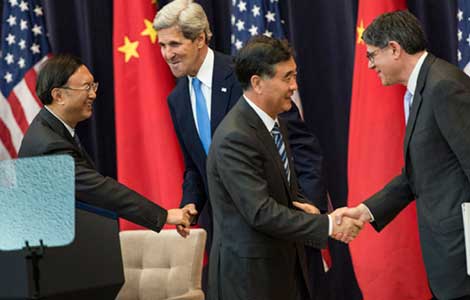
 Sino-US talks 'help build trust'
Sino-US talks 'help build trust'
 Boston Marathon bombing suspect pleads not guilty
Boston Marathon bombing suspect pleads not guilty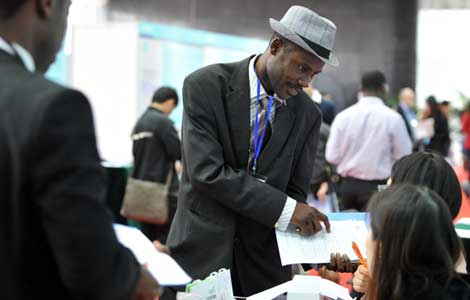
 Caution urged in seeking experts from abroad
Caution urged in seeking experts from abroad
 Shanghai struggles with growth
Shanghai struggles with growth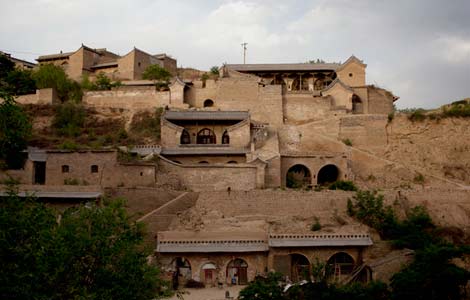
 Trade town turns to tourism
Trade town turns to tourism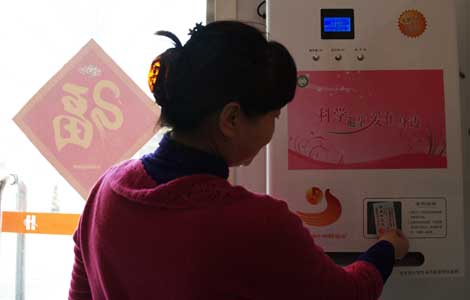
 Project focuses on unmarried youths
Project focuses on unmarried youths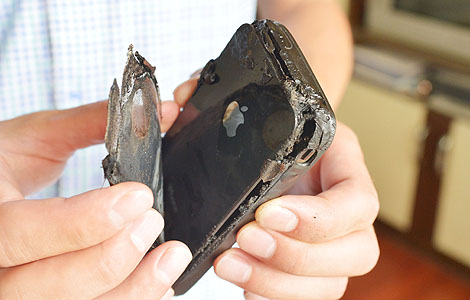
 Safety fears after iPhone 4 explodes
Safety fears after iPhone 4 explodes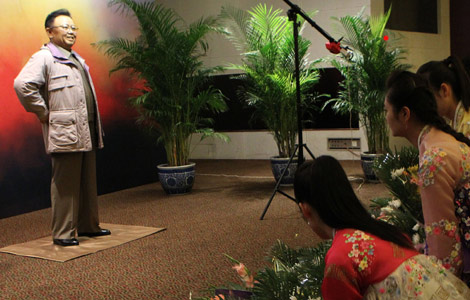
 China donates wax figure of Kim Jong-il to DPRK
China donates wax figure of Kim Jong-il to DPRK
Most Viewed
Editor's Picks

|

|

|

|

|

|
Today's Top News
Obama pushes House Republicans on immigration
Chinese researcher pleads guilty in US drug case
US Navy completes 1st unmanned carrier landing
Dialogue starts with calls for closer cooperation
Nations vow regular exchanges
Program to help migrant workers find better jobs
Saving dogs brings hefty bill for rescuers
Fairness in organ system ensured
US Weekly

|

|








